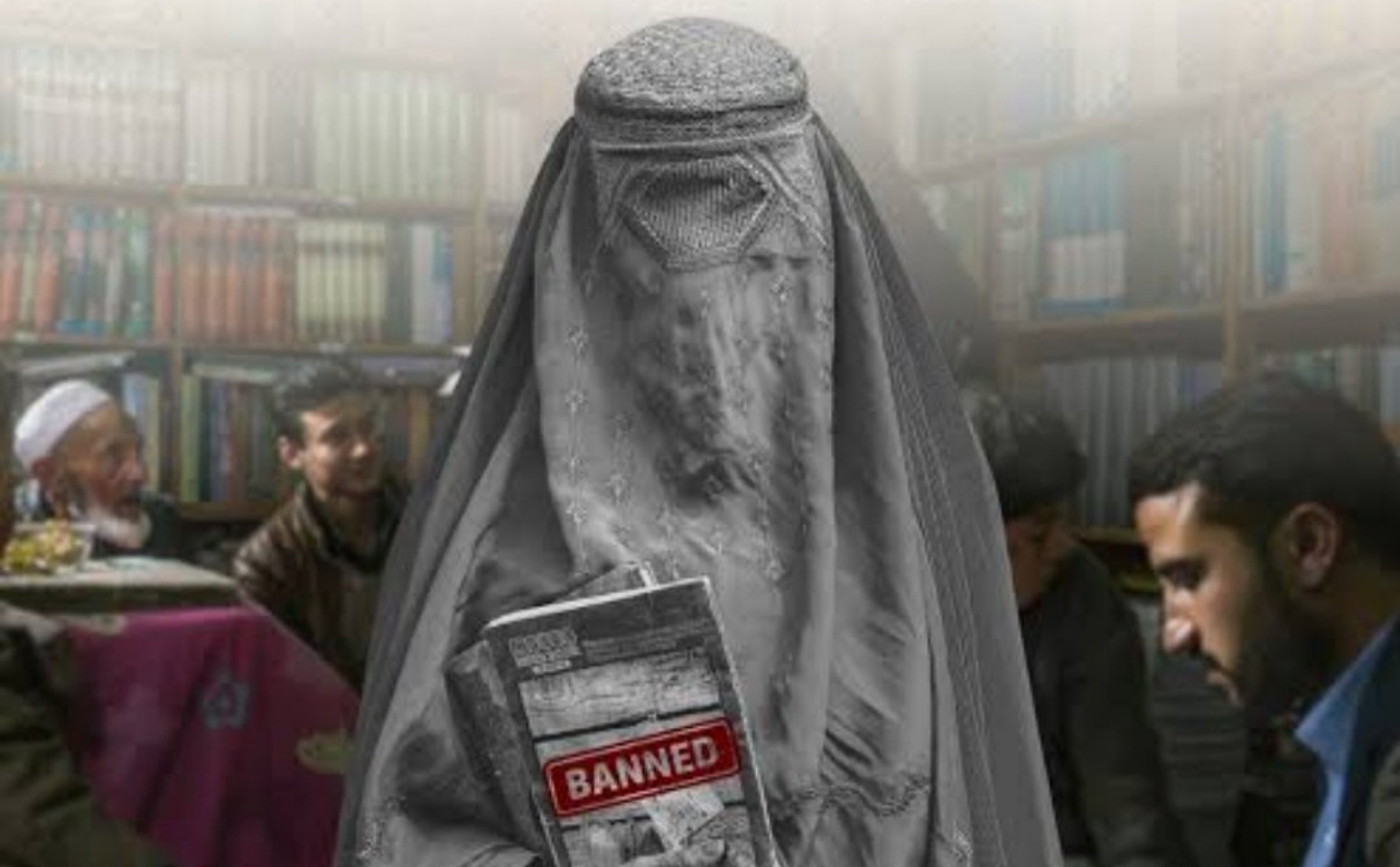
Hindu Voice Team: The Taliban government has introduced another controversial restriction in Afghanistan’s education sector by banning all books authored by women from being taught or read in universities across the country.
According to the directive issued by the Ministry of Higher Education, academic institutions are no longer permitted to include works written by female writers in their curricula or syllabi. The ban covers every subject area, extending beyond literature to encompass social sciences, history, and other disciplines where women’s contributions are significant.
This latest decision has sparked growing concerns about the Taliban’s ongoing efforts to systematically erase women from intellectual, cultural, and public life. Since regaining power in August 2021, the Taliban have already barred girls from secondary education, restricted women’s access to universities, banned them from most forms of employment, and imposed strict social controls, including rules on dress and movement.
Human rights organizations and global advocacy groups have condemned the new ban, describing it as part of a broader campaign to silence female voices. Activists warn that such measures will not only deepen gender inequality but also damage Afghanistan’s already fragile education system by denying students access to diverse perspectives and critical knowledge.
“This policy sends a clear message that women’s ideas and contributions have no place in Afghanistan’s academic discourse,” said one Kabul-based rights activist, speaking anonymously for fear of reprisal. “It is not only an attack on women but also on the intellectual development of the entire country.”
International bodies, including the United Nations, have repeatedly urged the Taliban to reverse restrictions on women, warning that Afghanistan risks total isolation from the global community. Despite this, the Taliban leadership continues to frame its decisions as aligned with what it calls “Islamic values and Afghan traditions.”
Observers believe the new directive will further accelerate the country’s brain drain, as students and academics—both men and women—seek opportunities abroad. Analysts also warn that the silencing of women’s voices could have long-term consequences for Afghanistan’s cultural identity, cutting off future generations from an essential part of the nation’s literary and scholarly heritage.
With the international community watching closely, the ban is likely to fuel more criticism of the Taliban regime and increase pressure for diplomatic and economic isolation until basic rights, particularly for women and girls, are restored.
The international community has swiftly condemned the Taliban’s actions. UNESCO issued a statement denouncing the decision, describing it as a “profound violation of human dignity and the fundamental right to education.” The organization warned that such measures would have “irreversible and severe consequences” for Afghanistan’s social, cultural, and economic development .
Amnesty International also criticized the ban, highlighting the Taliban’s ongoing efforts to erase women from public life. A spokesperson remarked, “The Taliban have made life for Afghan women and girls intolerable. They have erased them from almost all spheres of life and systematically stripped away their rights and dignity” .
The ban is expected to have far-reaching implications for Afghan society. By removing female-authored works from academic institutions, the Taliban aims to suppress diverse viewpoints and reinforce a singular, state-sanctioned narrative. This move is part of a broader pattern of restrictions on women’s rights, including bans on employment, education, and public expression.
Students and educators have expressed concern over the policy’s impact on academic freedom and intellectual development. One Kabul-based academic, who wished to remain anonymous, stated, “This is not just an attack on women; it’s an attack on knowledge and progress.”
The United Nations has reiterated its position, stating that peace and prosperity in Afghanistan remain “unachievable” until the Taliban reverses its bans on women and girls’ education, employment, and public expression. The UN Security Council emphasized that the country’s reintegration into the international community hinges on the protection of fundamental human rights .
Human rights organizations worldwide have rallied in support of Afghan women, organizing protests and campaigns to raise awareness about the escalating repression. Activists argue that the Taliban’s actions are not only a violation of international law but also a denial of the basic human rights of Afghan citizens.
The Taliban’s ban on female-authored books in universities marks a troubling development in Afghanistan’s ongoing human rights crisis. As the international community responds with condemnation and calls for accountability, the situation remains dire for Afghan women and girls, who continue to face systemic discrimination and exclusion from public life.